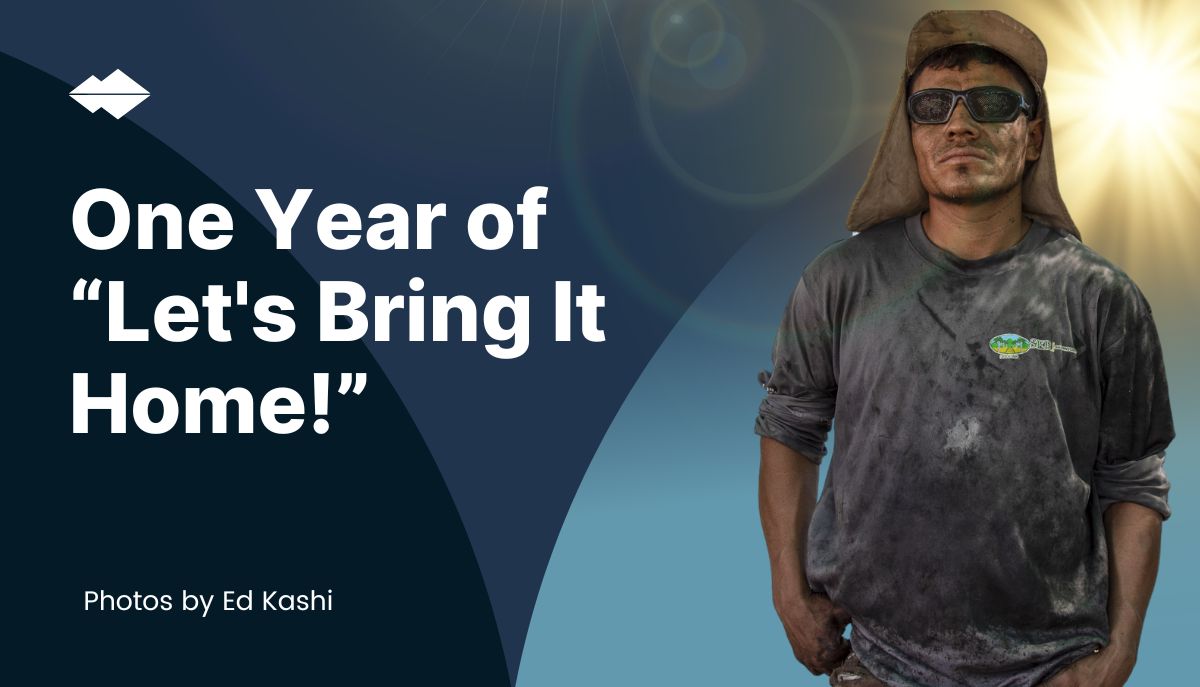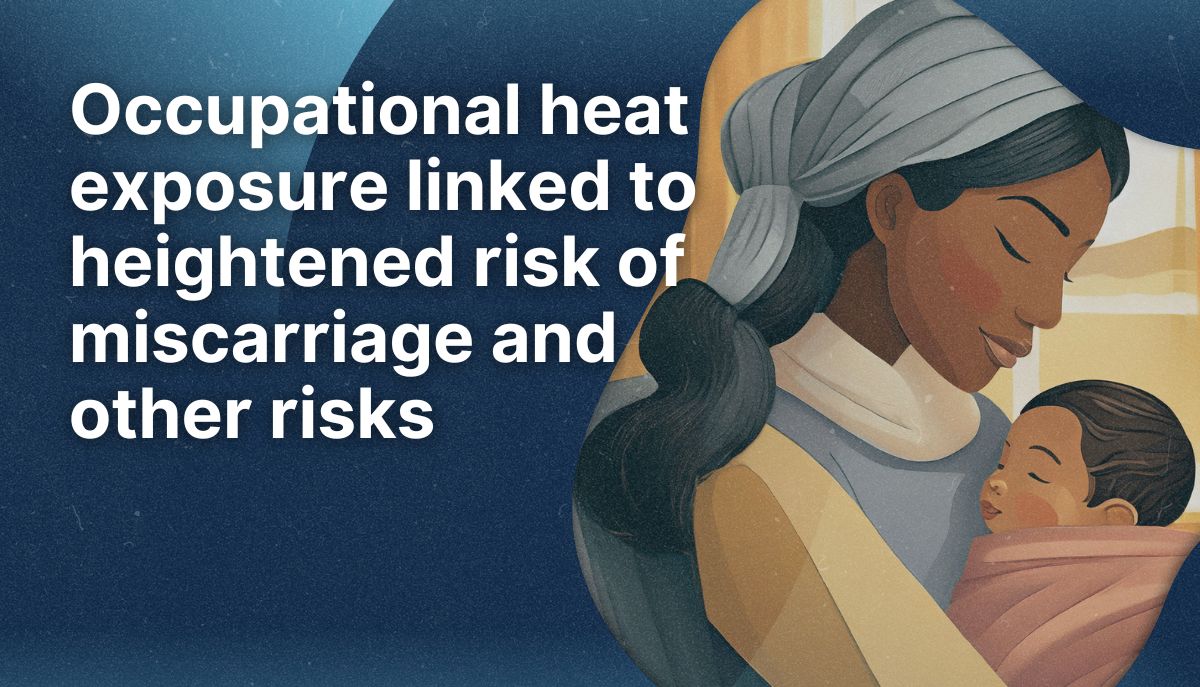One year ago, we launched the Let’s Bring It Home! campaign to draw attention to the fact that workers in the U.S. and Europe are already feeling the effects of heat stress. The tropical zones, with their year-round heat, have rightfully been the primary areas of interest when talking about understanding and stopping occupational heat stress.
Climate change is turning that logic on its head by making heat more intense, frequent, and lasting worldwide. Research and personal experience are proving this.
Even in the face of this great challenge, La Isla Network is making headway in protecting workers. Keep reading below to learn why heat stress is a cause for concern, and what La Isla Network has been doing to counter it.
The Facts
Workers make up the threads of the social fabric. They sustain businesses, the economy, and ultimately our livelihoods. Research by scientists in our network and beyond shows that heat is harming worker health and productivity. The harm done to workers will affect us all. Following is an index of facts coming from that research.
Protecting workers from excessive heat is our moral and civic duty. The solution is as simple as rest, shade, hydration, plus sanitation.
“Governments, the private sector, multilateral institutions and civil society have a unique chance in history to protect workers’ lives by implementing policies, laws and regulations that require, once and for all, mandatory breaks and access to water, rest and shade. The right of workers to occupational physical and mental health cannot wait while temperatures and heat stress reach new extremes.”
“In this partnership with Turner Construction Company, we are focusing on safeguarding construction workers from heat stress, an important hazard exacerbated by global warming. These joint efforts are to investigate heat stress in construction workers at a large scale and implement effective safeguards to protect the well-being of workers while sustaining productivity in this vital sector of our economy.”
“Occupational Health and Safety should be the top priority every day. Unfortunately, this isn’t the reality for many migrant laborers. Events like these can raise awareness among various stakeholders, including workers and employers.”
“In response to Miami Dade county’s efforts to protect outdoor workers, Florida governor Ron DeSantis passed HB 433 earlier this month, preventing cities and towns from protecting the 2 million outdoor workers in the state from the blazing Florida heat. Now, mandated water breaks cannot be imposed by local governments in Florida, and nothing is being done to protect workers at the state level. This has got to stop.”
Protecting workers now, abroad and at home

Ingenio San Antonio
Key Highlights
- Our aim is to close any and all gaps that might be found in Ingenio San Antonio’s supply chain.
- The incidence of kidney injury has gone from 21% to 1%, post-intervention. We have provided ISA with a 22% return on investment
- Our protocols have helped Ingenio San Antonio achieve excellence in sustainability, earning recognition from certifiers and improving their brand positioning.
Recognition in Excellence
Ingenio San Antonio won two award categories in the 2024 Just Drinks Excellence Awards, for Social and Environmental Sustainability.
Closing gaps and providing a return on investment
Our goal is to close any and all occupational safety and health gaps that might be found within Ingenio San Antonio’s (ISA) supply chain. We aim to make it one of the first companies with a fully protected supply chain. Protocols put in place with the help of La Isla Network will prevent workers from falling ill due to heat stress and other climate change-driven risks. ISA will also benefit from a return-on-investment.
Data collected on-site shows this. Before the intervention, ISA’s workforce experienced a 21% incidence rate of kidney injury. That has dropped to 1%. This was possible through the implementation of a rest, shade, hydration, plus sanitation program.
That’s one-half of the story. The program has been fine-tuned through data collected on-site to ensure it is as effective as possible given the specifics at the work site. As a result we have been able to provide ISA with a 22% return on their investment.
Our protocols are compliant with certifications, standards, and laws on ethical and sustainable production. ISA’s commitment to protecting their workforce is validated by its certifications from Bonsucro, Fair Trade USA, and ISCC EU. By meeting over 300 rigorous labor, social, and environmental criteria set by Fair Trade USA, ISA has demonstrated its dedication to responsible business practices.
Denis Chavarría, M.D., M.Sc., Occupational Health Manager at ISA
“Ingenio San Antonio’s commitment to sustainable practices includes the work we’ve done over the years with key partners such as La Isla Network. We have developed pioneering worker health and safety programs that are truly ground-breaking and with the potential to have a global, cross-industry impact.”

Turner
Key Highlights
- In the U.S., workers in the construction industry are disproportionately at risk of heat-related illness, injury, and death.
- A pilot study in Kansas City found that 43% of workers experienced an internal body temperature exceeding 100.4°F.
- The study was done with U.S. based-researchers who form part of La Isla Network’s team of investigators. They work together to exchange knowledge and form thought leadership.
Addressing Heat in the Workplace in the U.S.
In the United States, the construction industry is at heightened risk for heat stress. Construction workers are disproportionately at risk of heat-related illness, injury, and death. Workers’ compensation data show that construction workers make up the bulk of those who succumb to heat-related illness. Compared to workers in all other industries, construction workers experience 13 times the risk of heat-related death. Between 2000 and 2010, the bulk of heat-related deaths occurred in construction, at 36.8%.
The foundation of La Isla Network’s project with Turner Construction is this: addressing occupational heat stress at home using data- and evidence-driven approaches. Acquiring data to address occupational safety and health hazards is a challenge that many companies face. Too often, flying blind means that OSH hazards are not addressed or if they are, then only partially. Our role is to assist Turner Construction in identifying and intervening on their biggest risks at work.
The results of a pilot study in Kansas City with Turner have confirmed workers’ risk of heat-related illness, injury and death. They showed that 43% of workers experienced an internal body temperature exceeding 100.4°F, with 4% exceeding 101.3°F, even in conditions that were cooler than typical summer conditions.
The research was conducted in partnership with researchers Dr. Fabiano Amorim and Dr. Zachary Schlader from the University of New Mexico and Indiana University Bloomington, respectively. Amorim and Schlader form part of our extensive network of researchers working around the world to tackle heat stress. Being part of the network means the exchange of knowledge and the development of thought leadership. Truly, tackling a problem with global reach, requires global teamwork. Because of Turner’s global reach, the results of this study and continuing projects in the near future will have an impact in protecting construction workers worldwide.
Monika Serrano, Resilience Program Manager, Turner Construction
“As part of our focus on creating an ever-more adaptable, resilient, and sustainable built environment, it is critical that we think about our people. We need research and data to promote awareness and ultimately to drive development of policy, protocols, and procedures to keep workers safe—while also keeping our industry functioning. If we want to keep building, we have to adapt.”










